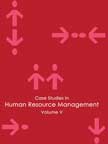Whole Foods Market's Unique Work Culture and Practices
|
|
Case Details:
Case Code:
HROB086
Case Length: 23 Pages
Period: 1978 -2006
Organization: Whole Foods Market
Pub Date: 2006
Teaching Note: Available
Countries: USA
Industry: Retail
To download Whole Foods Market's Unique Work Culture and Practices case study
(Case Code: HROB086) click on the button below, and select the case from the list of available cases:

Price:
For delivery in electronic format: Rs. 500;
For delivery through courier (within India): Rs. 500 + Rs. 25 for Shipping & Handling Charges
»
Human Resource, Organization Behavior Case Studies
» HRM Short Case Studies
» View Detailed Pricing Info
» How To Order This Case
» Business Case Studies
» Area Specific Case Studies
» Industry Wise Case Studies
» Company Wise Case Studies

Please note:
This case study was compiled from published sources, and is intended to be used as a basis for class discussion. It is not intended to illustrate either effective or ineffective handling of a management situation. Nor is it a primary information source.
Chat with us

Please leave your feedback

|
|




<< Previous
Background
|
The history of WFM goes back to 1978, when John Mackey (Mackey), a college
dropout from Texas, and his friend Renee Lawson Hardy (Hardy), started an
organic foods store in Austin, Texas. The store was called Safer Way Natural
Foods (after Safeway Inc. 7), and the
partners opened it with a capital of $45,000 8
borrowed from their friends and families.
Safer Way was a 3,000 square foot store, which primarily sold organic food and
groceries. The store also contained a small restaurant. The store and the
restaurant were strictly vegetarian, and the partners sourced their supplies
from local communities.
|

|
It wasn't long before Safer Way found a loyal clientele, but Mackey and his
partner had had no business training, and found it difficult to run the
business. By the end of the first year, the store had lost $23,000.
|
|
In the
1970s, there were only a handful of organic food stores in the US. These
stores were usually small and did not offer much variety in terms of
merchandise. None of them offered a full range of products. (Some
specialized in vegetables, others in meat, and so on. There was no place
where people could get a complete range of organic products under one
roof). Because of this, people who were committed to organic food had to
put up with the inconvenience of having to visit several different
stores to do their shopping. The products were also thought to be too
expensive, considering the poor ambience of the stores and the
inconvenience to shoppers. Because of this, there were few takers for
organic or natural foods at that time. |
Excerpts >>
|
|










